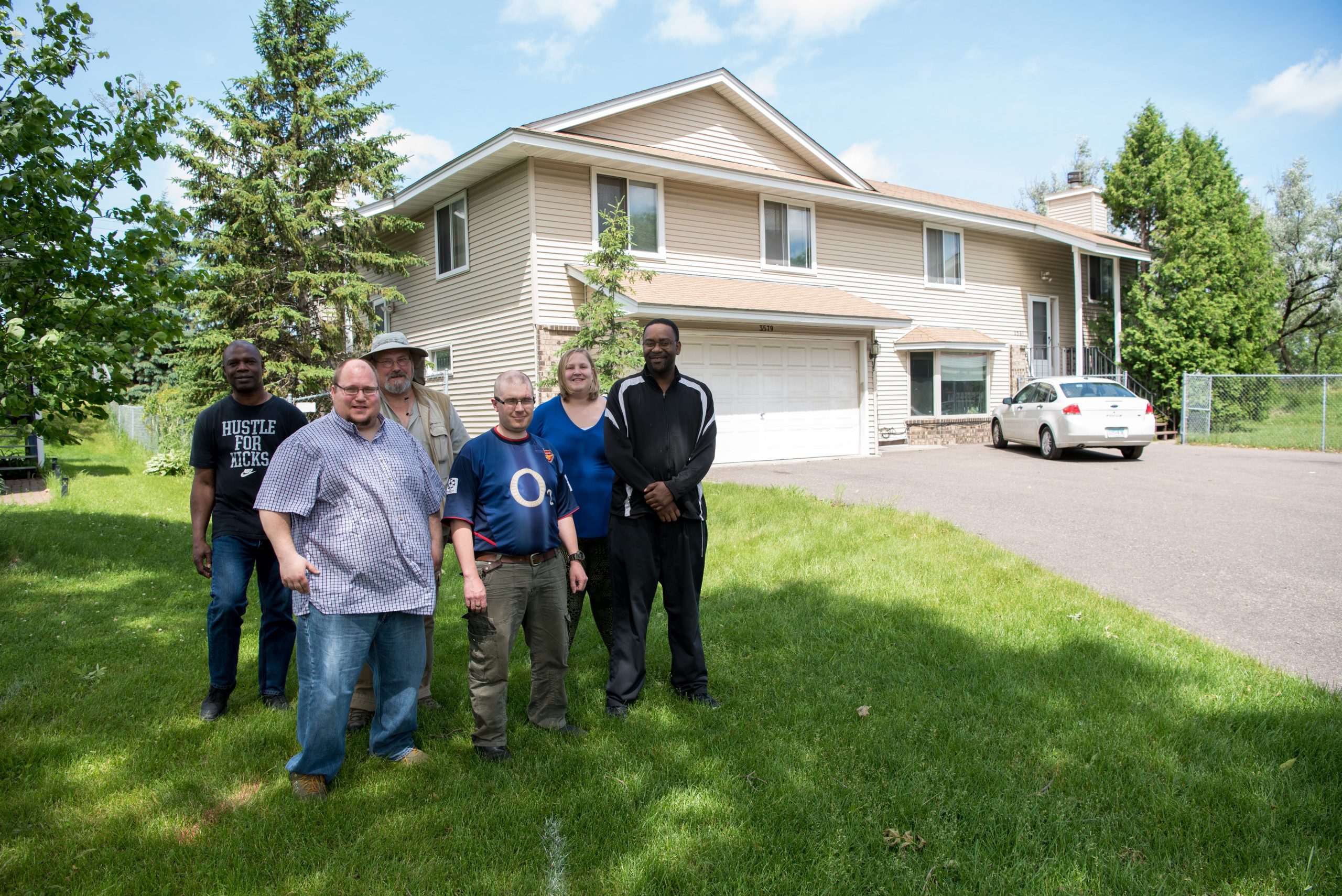About Us
Our History
Tasks Unlimited formed on June 2, 1970 in response to Dr. George W. Fairweather’s success at creating an alternative approach to mental illness hospitalization, now known as the Fairweather Model. The not-for-profit corporation began assisting the in-hospital training of potential new lodge groups at Anoka State Hospital. After months of training and support from Dr. Fairweather’s team, Tasks Unlimited opened its first lodge on October 18, 1970.

Our Mission
Tasks Unlimited provides supported employment, housing and recovery services for people with mental illness so that they achieve a full life with the rights and responsibilities of adults in our society.
“Like anyone, Tasks’ clients desire stable, long term employment with good wages. They’re proud of their ability to be self-sufficient and active members of their communities and we’re proud of them.” – Karen Johnston, Former Executive Director
All people, including those with mental illness, deserve the chance at a meaningful life, a life full of living, working, and achieving.
Living.
Grounded in the Fairweather Lodge Model, Tasks Unlimited supports mental health recovery by encouraging group decision-making and community living. By living and working as a group, program participants hold each other accountable in their mental health recovery.
Working.
Consistent, supportive employment is a key component to the mental health recovery process at Tasks Unlimited. Through Tasks Unlimited Building Services, program participants perform janitorial services, mailroom management and building maintenance to businesses throughout the Twin Cities.
Achieving.
Nothing bolsters self-esteem like having a meaningful role in your world. And, self-esteem broadens one’s vision of what is truly achievable in life.
We Believe
- People experiencing mental health problems are more like other people than they are different.
- Skill training and development that focuses on strengths is more useful than approaches that focus on weaknesses.
- Stable daily performance is preferable to episodic periods of high achievement.
- Natural healing occurs over time.
- A stable, supportive environment and productive lifestyle promote natural healing.
- Dependency is an outcome of inappropriate treatment rather than a symptom of mental illness.
- Dependency is remediable and preventable.
- Adults with serious and persistent mental illness are able to form and develop healthy adult relationships.
- Interdependence best describes healthy adult relationships.
- Pursuing independence without developing meaningful and supportive peer relationships frequently leads to isolation and loneliness that can hinder personal growth and healing.
- Independent and interdependent living skills are most effectively taught by peers.
- Financial dependence is the least acceptable and least necessary form of dependency for adults experiencing serious and persistent mental illness because most are capable of productive work.
- Improved self-esteem is the most effective antidote for dependency and is a prerequisite for self-sufficiency.
- Identity, dignity and income are three excellent sources of self-esteem, and work is a primary source of all three.
Ready to get involved and make a change?
Learn how to support us, donate or volunteer today!